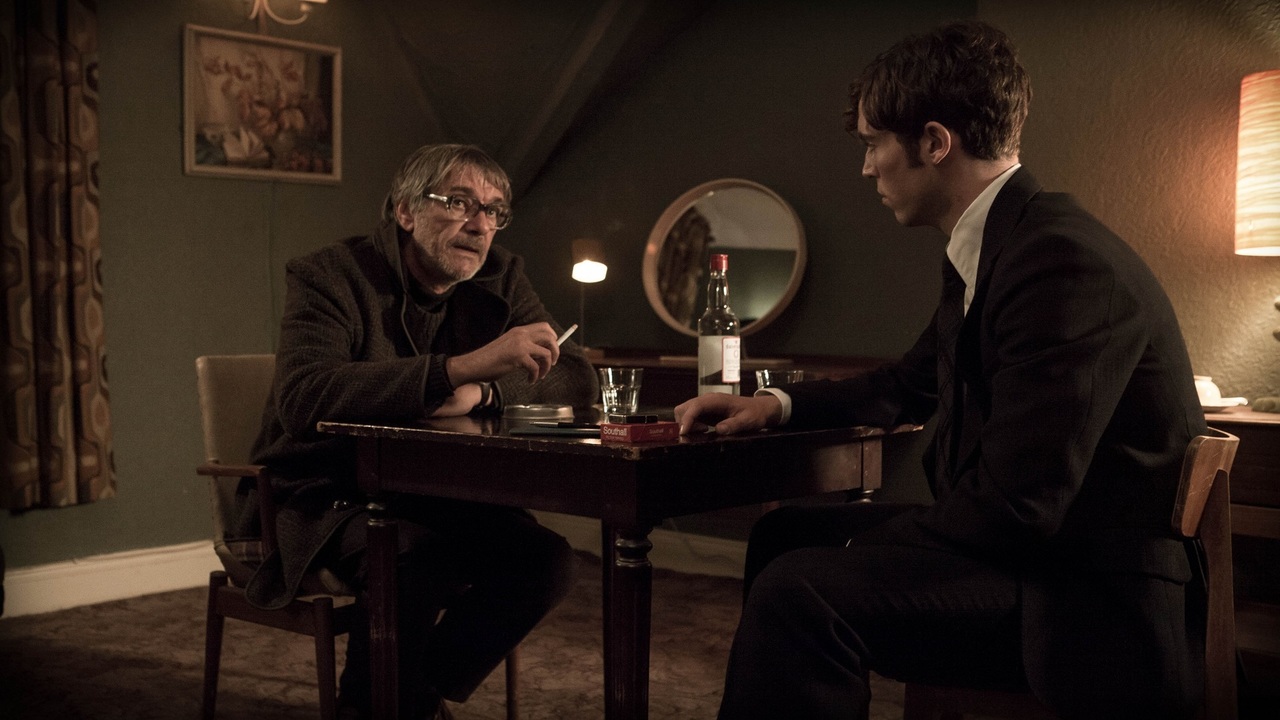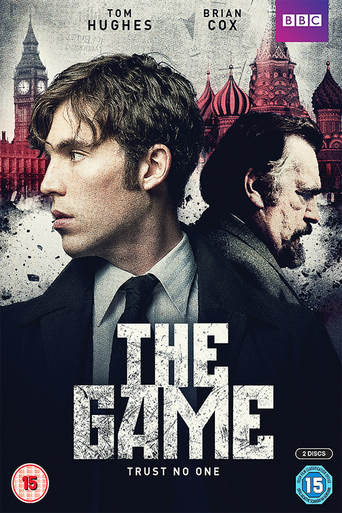

It seems as though the Cold War spy thriller is making something of a come back in recent years. The last few years have seen a spate of new adaptations of the classic Cold War era works of author John le Carre ranging from the Oscar nominated film adaptation of Tinker Tailor Soldier Spy to a slew of BBC audio drama adaptations of the various novels. Authors such as Charles Cumming in his novel The Trinity Six have also explored the legacy of the Cold War as well. Yet there's also been new tales told as well, pastiches of a thought dead genre. One particularly interesting one was the BBC's six part thriller The Game, created by Toby Whithouse, which took viewers into MI5 in early 1970s Britain.The premise of the series is simple enough. It's 1972 and Britain is the throes of a miners strike, power cuts, and a general sense of unease. Into this world, a KGB Colonel approaches MI5 with word that a major Soviet operation called Operation Glass is about to take place. An operation so major that it will redefine the history of British-Soviet espionage. Investigating Operation Glass are a number of MI5 operatives and brass from field agent Joe (Tom Hughes), counter-espionage boss Bobby (Paul Ritter), his deputy Sarah (Victoria Hamilton), her electronic surveillance expert husband Alan (Jonathan Aris), rising secretary Wendy (Chloe Pirrie), and Special Branch officer Jim Fenchurch (Shaun Dooley) with the agency director known only by the code-name "Daddy" (Brian Cox) sitting at the top.Whithouse, along with writers Sarah Dollard and Debbie O'Malley for some of the middle episodes, certainly know the genre they are playing with. As well as the mysterious Operation Glass, it becomes apparent quickly that there is a mole within MI5 (potentially within their own little group) which threatens to expose the investigation. There are shades of the le Carre classic Tinker Tailor Soldier Spy as well as other notable Cold War thrillers such as Fredrick Forsyth's The Fourth Protocol. Indeed it would be easy to simply call The Game a potential rip-off of le Carre but that is to give only a superficial glance at the series. For Whithouse injects into familiar le Carre tropes other elements of Cold War spy fiction, putting them out in the field alongside them as it were. There's fears of Soviet infiltration of the British establishment (a very real worry in the post-Cambridge spies era), nuclear secrets, the inter-service rivalry between the domestic focused MI5 and the foreign-focused MI6 which all come into play. More than that, the series does a nice job of creating a sense of time and place by tying into larger issues of the early 1970s including IRA bombings and the state of British politics, which gives this fictional take on the era an air of verisimilitude. Combined with the characters and often strong guest casts, it's a compelling 21st-century take on the Cold War spy thriller.That sense of time and place is something apparent in the production values as well. The sense of pastiche comes across especially in the visuals of the series, especially as the series seems to harken back at times to the aforementioned 2011 film version of Tinker Tailor Soldier Spy. From the interior of MI5 to the way people are dressed, there are strong echoes of that film here. More than that, the direction of Niall MacCormick and Daniel O'Hara drives that point home. So too does the cinematography of Sam McCurdy and Urszula Pontikos with its washed out colors that bring to mind the dreariness one often associates with the decade in the UK. How much of this is a deliberate echo of director Tomas Alfredson and cinematographer Hoyte van Hoytema's work on that film is unclear as it might be down to both the film and TV series being set in the same time period but using that as a visual shorthand certainly helps the series in setting its tone. When composer Daniel Pemberton's score is added, especially when his haunting opening theme is paired with a very well opening title sequence, it helps bring to life Whithouse's vision rather nicely.The Game then stands a Cold War spy thriller made in the present day. It nicely echoes elements of the genre's classic such as Tinker Tailor Soldier Spy while also finding new things to do as well by tying into the wider world of early 1970s Britain, allowing it to be more than just a pastiche of a bygone genre. In the process, it becomes a compelling, twisty piece of work that rewards viewers willing to watch the entire series.If you can, of course, trust what you're watching. After all, in the espionage world, things are so rarely what they seem. The Game certainly proves that to be the case.
... View MoreCall it a Le Carré light. MI5, spies and Cold War. Toby Whithouse, Sarah Dollard and Debbie O'Malley deliver 6 episodes of good fun and high entertainment full of suspense and surprise. Excellent mood and camera play, the viewer is convincingly cast back to a London of the 70's.A tremendous performance from the entire cast especially Paul Ritter playing the hypocritical British public school creep! Worth watching if only for his performance and the exquisite interaction with his assistant the superb Chloé Pirrie (a touch naive, upright, loyal researcher).The suspension of disbelief is perhaps called for to draw maximum enjoyment. The strength of the production rests chiefly on the convincing relationships fleshed out.Why oh Why does the BBC have to nip above average productions in the bud. Xen is another example. It seems that the minute a viewer's brain is in any way engaged the Corporation pulls the plug out on it! Let's have some more please!
... View MoreOne part 'Tinker, Tailor', and one part 'Spooks', moody thriller 'The Game' tells the story of an attempt by the British government (in a thinly fictionalised 1970s) to spoil a major Soviet intelligence operation. There's the possibility of at least one mole, office politics, and a brooding air of tension amid general social decay. But what made John Le Carre's story so brilliant was its minimalism: not one thing happened that wasn't necessary for the plot. 'The Game' needs too many set pieces and seems to present an intelligence agency repeatedly guilty of both bizarre judgement and operational incompetence. The love story woven into the story has its own tragic conclusion; but none of the subtlety of George Smiley's complicated, broken relationship with Ann. Tom Hughes is underpowered in the lead role; the supporting cast, however, at least play their (somewhat stereotyped) parts with gusto.
... View MoreA good old-fashioned Cold-war thriller that resembles Len Deighton more than John LeCarre (especially as one of Deighton's books was entitled Berlin Game.) It certainly has the slow pace of the masters in order to facilitate character development as the personalities of the people that play the game are intrinsic to the plot. It's beautifully shot and the scenery is very 1970, although there are far too few cars in shot for it to resemble central London. Still, can't complain as these things cost the cash that the Beeb is usually strapped for.A few anomalies in the script could have been avoided, though. Why did the KGB pretend to kill Julia instead of making Joe do their wicked will by pressing a gun to her head? Why wasn't Joe chief suspect from the start? But these pale into insignificance beside the scene in the last part where Sarah meets her husband in the safe-house without thinking that the room is certain to be bugged. Beans spilled all over the show after 25 years of great care to ensure against such mishaps. In the annals of great TV dramas, this rates as a schoolboy-howler.Still an enjoyable, pleasingly-retro, thriller. Those of us who enjoyed LeCarre and Deighton will have a nice glow of nostalgia whilst watching this one and the youngsters can learn how TV drama should be done.
... View More